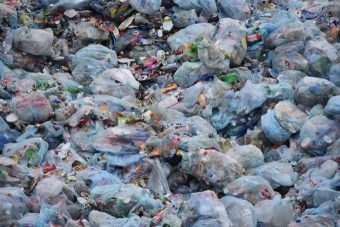
The 32nd annual International Coastal Cleanup took place on September 16. Promoted by the Ocean Conservancy, the coastal cleanup began with a small group of volunteers in Texas in 1986 and has grown every year. In 2017, there were more than 6,000 events in 100 countries around the world involving hundreds of thousands of people.
“From the Hawaiian islands to the Great Lakes, from Latin America to Hong Kong and everywhere in between, the International Coastal Cleanup represents a truly global movement for trash-free seas,” says Ocean Conservancy CEO Janis Searles Jones. “And we are so thrilled by the tremendous growth this movement has seen over the past three decades.”
Since the first ICC over 30 years ago, more than 12 million volunteers have removed more than 220 million pounds of trash from coastlines around the world.
This year, in addition to removing trash, the volunteers made a record of every piece of trash collected either manually on index cards or digitally using the Ocean Conservancy Clean Swell app. The data gets added to the Ocean Trash Index, which assists scientists, researchers, industry leaders, and policy makers to work together toward ridding the oceans of manmade trash and debris.
In its latest press release, the Ocean Conservancy says, “Every year, millions of tons of trash — including an estimated 8 million metric tons of plastic waste — flow into the ocean, entangling wildlife, polluting beaches, and costing coastal municipalities hundreds of millions of taxpayer dollars.
“Cigarette butts, plastic beverage bottles, food wrappers, plastic bottle caps and plastic straws are among the most-commonly collected items. They are also among the most deadly to wildlife like seabirds and sea turtles. Plastics — which never fully biodegrade but rather break up into smaller and smaller pieces called microplastics — are of particular concern. Scientists predict that without concerted global action, there could be one ton of plastic for every three tons of fin fish in the ocean by 2025.”
The International Coastal Cleanup is the answer to that frequently asked question, “What can one person do to help?” Getting involved with the ICC is a chance to act locally and have a global impact. “Year after year, I meet volunteers all around the world who remark on how transformative the International Coastal Cleanup has been for them in understanding the marine debris issue and the impact that they can have as an individual,” says Allison Schutes, associate director for the Conservancy’s Trash Free Seas® Program. “The ICC illustrates how individual choices matter to ocean health.”
The issue of ocean trash is getting more and more attention lately. One of the teams that will compete in the next Volvo Ocean Race that begins in October has dedicated itself to making people around the globe aware of the dangers of plastics in the ocean.
With help from organizations like the Ocean Conservancy and the Mirpuri Foundation, the idea that humanity can use the oceans as a dumping ground forever without consequences is beginning to be replaced with a desire to protect our precious natural resources from further harm. Contact the Ocean Conservancy for more information about how you can get involved and make a difference wherever you live.
Source: cleantechnica.com



